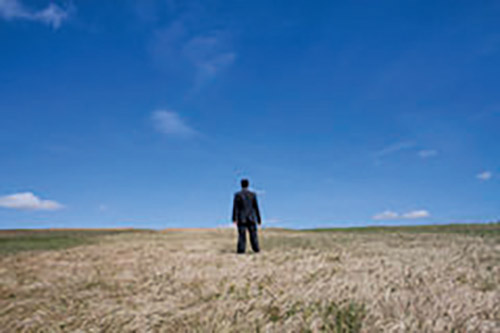
COVID-19 has made this Rosh Hashanah different, but can it also make it more meaningful? Will the events of the past seven months cause the Unetaneh Tokef and all of Rosh Hashanah to resonate more with us this year?
“[H]ow many shall pass away and how many shall come into existence; who will live and who will die, who in his time and who prematurely;….”
At the height of the pandemic, when we were confined to our homes, we heard all too frequently the sound of ambulances. We often did not know the ambulances’ destination. We wondered for whom was it coming and would that person return? Indeed, we all know, or know of, people went to the hospital and never returned. Who will live and who will die? That question of the Unetaneh Tokef took on a greater poignancy over the last few months.
There were times when you had no energy, you were incapable of moving, breathing was difficult. You could not focus your thoughts. Your very bones ached. You vacillated between terrible cold shivers and burning fevers. In the day you longed for night and sleep. Yet night gave no rest, with dehydration or terrible nightmares waking you frequently. Similar to the biblical curses, at night you longed for day and in the day you longed for night. You were isolated from your family. Some lost their lives and some lost their livelihoods. The words who by fire and who by water, who by hunger and who by thirst, who shall be at peace and who shall be tormented, who shall become poor and who shall wax rich, became more powerful than ever over the last few months. Those words became immediate and tangible.
Imagine standing in a courtroom devoid of furnishings other than the bench upon which sits a judge. The judge bears a striking resemblance to your father and wears a look suggesting you have disappointed him at almost every possible level. At the same instant he has the aura of absolute power, making him appear unlike anyone you have previously seen and terrifying to stand before. You stand there completely naked, unable to hide your shame behind any piece of furniture, unable to even move your hands to cover yourself. The court room is silent. The silence is so absolute to be palpable. A silence so perfect you can truly hear the sound of silence, the “kol demama daka,” קוֹל דְּמָמָה דַקָּה mentioned by the Unetaneh Tokef and heard by Eliyahu.
Yet the phrase “kol demama daka” has another, and more common, translation or meaning. The phrase is most often rendered “a still, small voice.” In the courtroom a still, small voice is heard. The voice is piercing. Its clipped, cool, crisp diction is precise yet seemingly familiar. The familiarity is due to it being your own voice recounting every sin, every transgression, every trespass, every wayward thought, even those known only to your subconscious. You shiver in fear with a cold chill running through you even as you burn with shame. You want to collapse onto the floor in a fetal position to sob and beg but you are unable to move. Your unadorned and unarmored soul cannot offer any defense and you stand there awaiting the verdict. The day of judgment has come upon you.
The Unetaneh Tokef begins by stating: “Let us now relate the awesome holiness of this day.” Holiness, kedusha, means being set apart. Hashem is set apart, above and beyond time. For Him there is no past, present, or future. For Him, every moment is now. To Hashem, every moment is a weekday, every moment is a Shabbos, every moment is a Yom Tov, every moment is Rosh Hashanah, every moment we are being judged (Rosh Hashanah 16a). We, however, cannot perceive time in this manner. We do not realize that our judgment is constant and ongoing. Rosh Hashanah is different. Rosh Hashanah is holy as it is set apart from other days. On Rosh Hashanah, if we embrace the spirit of the day, we can perceive we are being judged and act accordingly. On this day we are given the opportunity to sob and beg and offer a defense and seek mercy and forgiveness if we truly embrace the spirit of the day.
This year, as a consequence of the pandemic, we will have fewer friends and family surrounding us. Many of us will stand alone, isolated in the synagogue as the Unetaneh Tokef is read. Just as the pandemic made the uncertainties of life recounted in the Unetaneh Tokef more immediate to us, perhaps this unusual isolation on Rosh Hashanah will give us a greater ability to understand that our souls are, that very day, standing alone before Hashem being judged. Perhaps we can seize upon the experiences of the last seven months and use them to better offer prayers on the first day of the seventh month so that 5781 will be a year of health, healing, peace and blessing.
William S.J. Fraenkel received a Bachelor of Arts in religion and a law degree from NYU and served as a board member and officer of several Orthodox shuls. The opinions expressed in this dvar Torah are solely his own.










